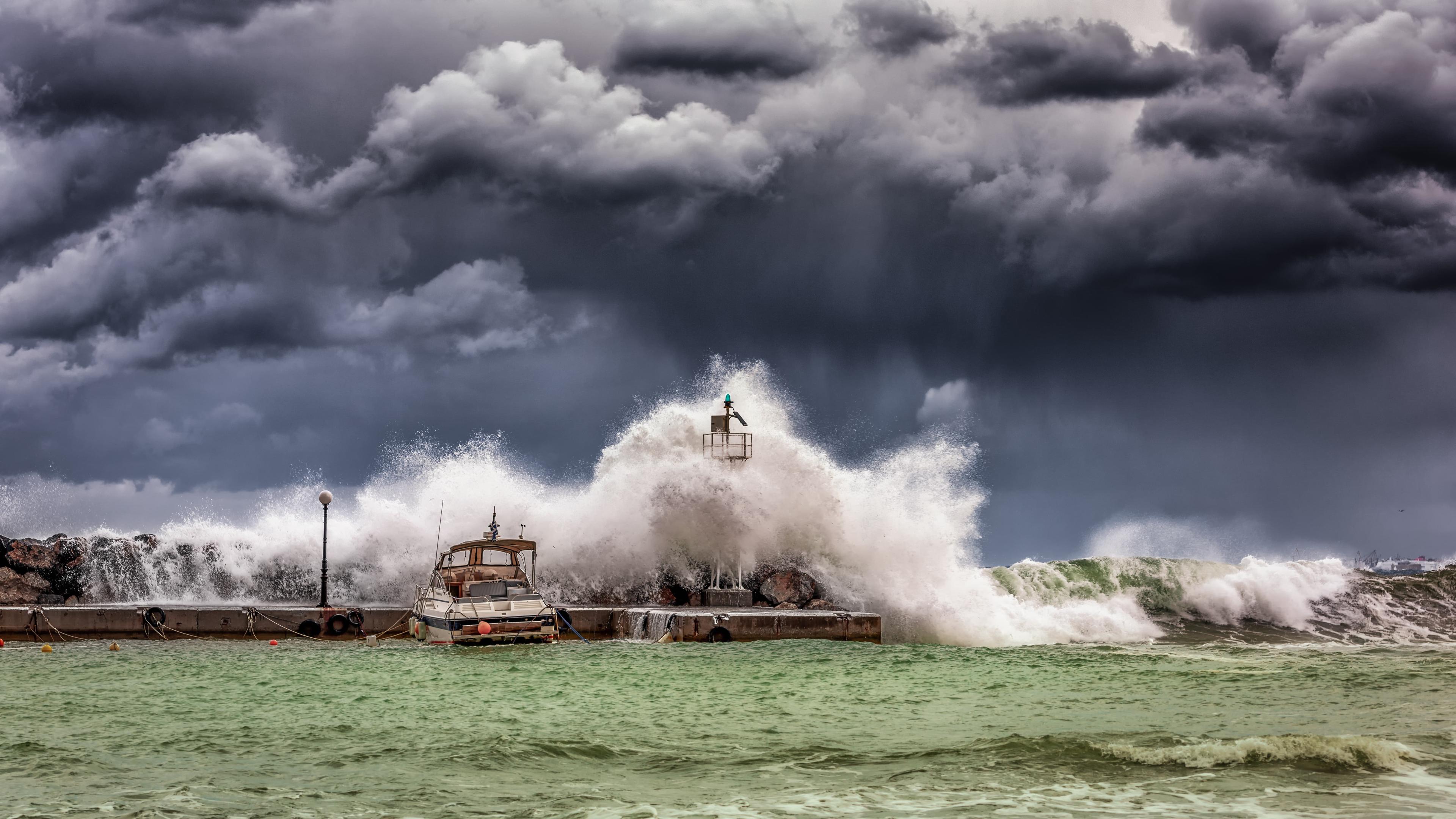Ocean Observing Prize: Competitions
Competition Objectives
Launched in 2021, the DEVELOP Competition focuses on a single theme, hurricane monitoring; however, the Ocean Observing Prize is repeatable, and it is expected that future iterations may focus on other themes.
Teams designed, built and tested experimental wave-powered ocean observing prototypes at the Naval Surface Warfare Center’s facility in Carderock, Maryland. These early-stage devices were not meant to be mature systems but demonstrate basic functionality and potential for refinement. Each team not only met evaluation expectations, but also helped identify future research opportunities for marine energy powered ocean observing platforms.
The competition also challenged competitors to develop systems that effectively integrated marine energy for propulsion, to recharge batteries, or more generally to increase the range, duration, or performance of the ocean observing platform.
Why Focus on Hurricane Monitoring?
While scientists and researchers have become adept at modeling and forecasting storm tracks, crucial improvements to storm intensity forecasting depend on the collection of better in situ, or in-ocean, measurements than what are currently available.
Collecting data on tropical cyclones and hurricanes is challenging for several reasons:
- The nature of these types of weather events makes it difficult to anticipate when and where they will occur.
- Storm environments are extremely energetic and create difficult operating conditions for people and robots.
- Even with power management measures in place, existing observation systems struggle to operate in one location for the full length of a hurricane season.

Ocean observation can chart the course to improved storm predictions. Credit: George Desipris, Pexels
The development of effective evacuation plans, and coastal protection efforts are hindered by the inability to provide communities with accurate intensity forecasting. And the stakes could not be higher; for example, the difference between a Category 3 and Category 4 hurricane can be 9 feet of additional storm surge.
Riders on the Storm
Predicting storm intensity is challenging, largely due to a lack of data, which could be addressed by collecting in situ data before, during, and after a hurricane develops and strengthens at sea. Amassing this type of data, however, requires an ocean observing platform that can be deployed at sea for long periods of time to wait for approaching storms.
While some systems have the ability to stay out at sea for an extended duration, they are often restricted to surface operations or are limited in speed, maneuverability, or in the number of data collecting instruments that they can host.
More frequent sampling, propulsion, or communications increases power consumption, which rapidly drains batteries and reduces the length of time the system can be deployed. Power management is crucial to the system design to maximize data collection and deployment time.
A wave-powered, self-charging ocean observing platform could address those limitations — which is where the Ocean Observing Prize comes into play. The prize competition challenges participants to leverage their cutting-edge creativity to meet this real-world need.
Learn more about the prize and how you can help us dream up tomorrow’s ocean observing tech.